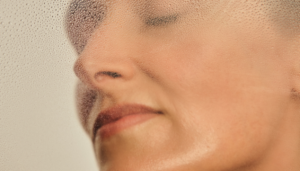Are you looking to turning back the clock and rediscovering the vibrant, smooth complexion of your 20s?
Exciting new discoveries in skincare are making this dream a reality, with exosomes being the new talk in town.
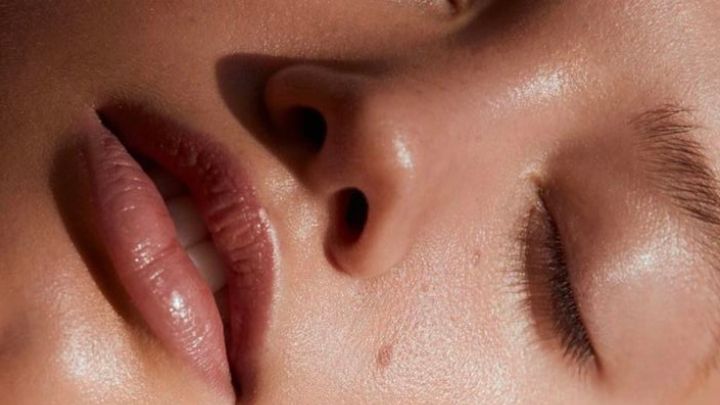
These tiny vesicles, packed with powerful bioactive substances, are revolutionising skin health.
From erasing fine lines to boosting collagen production, is exosomal therapy the magic, your skincare routine has been waiting for?
Let’s dive into their fascinating world and discover how they could transform your skin health and help you look or feel 25 again.
In this article
FREE anti-ageing guide

- Master the science of rejuvenation.
- Apply proven tips to turn back the clock.
- Transform your health with top longevity specialists.
What are exosomes?
Think of exosomes as tiny packages in your body that are filled with valuable goods, travelling from one cell to another. They are nano-sized membrane vesicles (30-100nm) secreted by all eukaryotic cells, mostly stem cells.
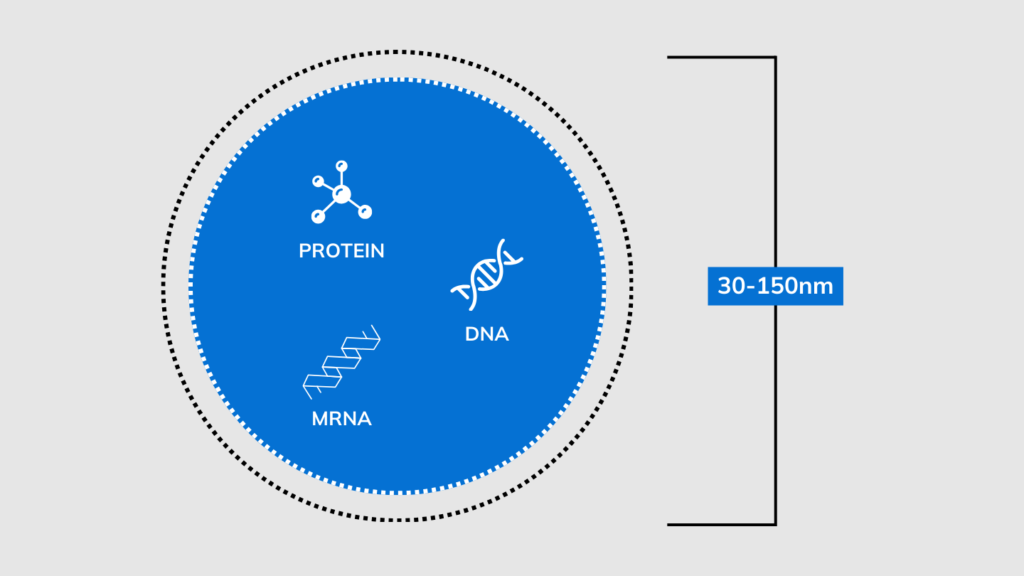
These little vesicles contain important information as mRNA, miRNA, proteins (like cytokines and growth factors), and lipids, all essential for cellular communication and response.
Once thought to be mere cellular waste carriers, exosomes are now recognised as crucial players in intercellular communication.
Dive deeper into the science behind exosomes.
What is exosomal therapy?
Imagine if there was a way to boost your skin and hair’s natural healing power, making them look fresher, younger, and healthier. That’s where exosomal therapy comes in.
For aesthetic and cosmetic purposes, exosomes are applied topically to your skin or scalp. They dive deep, sending signals to your cells to regenerate and heal more efficiently.
Whether you’re looking to reduce fine lines, improve skin texture, or stimulate hair growth, exosomal therapy can help you achieve noticeable results.
It’s a cutting-edge treatment that’s being vouched for being safe and non-invasive, making it a fantastic option if you’re looking to enhance your natural beauty with minimal downtime.
Mechanism of action of exosomes
So, how do these tiny vesicles work their magic?
Exosomes are recognised by surface receptors on target cells. They then fuse with the cell membrane, and are ingested through a process called endocytosis.
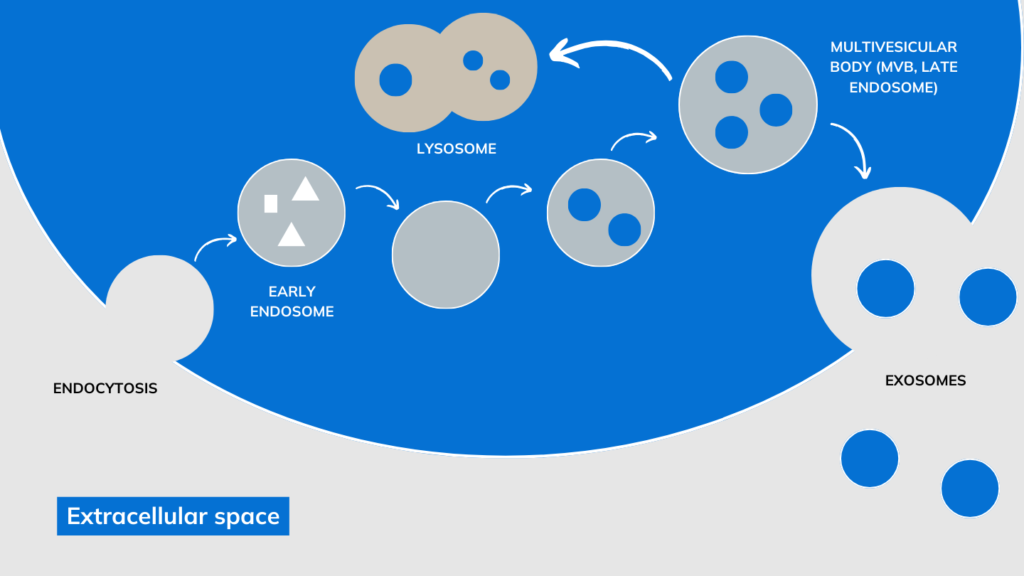
Once inside, the bioactive contents of exosomes get to work, influencing various cellular activities and responses, from promoting cell proliferation to modulating immune responses.
How do we extract exosomes?
One of the best sources for isolating exosomes, is mesenchymal stem cells (MSCs). These multipotent cells, derived from adipose tissue, are renowned for their regenerative and immunomodulatory properties.
In short, MSCs are cells that come from fat tissue, and are known for their amazing ability to help repair and regenerate the body.
MSC-derived exosomes have shown promise in fat grafting and as potent cell-free extracts in skincare.
Besides MSCs, other cell types like keratinocytes, fibroblasts, and melanocytes also produce exosomes, each with unique benefits for skin health.
- Keratinocytes are the main cells found in the outer layer of your skin. They help protect your body from environmental damage, and can produce exosomes that help in skin repair and regeneration.
- Fibroblasts are cells in your skin that produce collagen, which keeps your skin firm and elastic. The exosomes they release can help with wound healing and maintaining skin structure.
- Melanocytes are the cells responsible for producing melanin, the pigment that gives your skin its colour. Their exosomes can help regulate pigmentation and protect against UV damage.
Clinically proven results in 1 month: 100% vegan
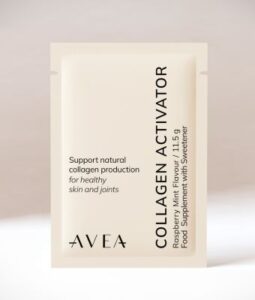
- Boost your natural collagen synthesis.
- Enhance skin hydration and smoothness.
- Promote healthy skin, bones, and joints.
How can exosomes boost your skin health?
1. Wound healing
Wound healing is a complex process with several stages: inflammation, epithelialisation (new skin formation), wound contraction, collagen deposition (strengthening the wound), and remodelling (final adjustments).
Exosomes play a crucial role in this process. They promote the formation of new blood vessels (angiogenesis) and help cells multiply and grow[1].
This helps reduce scar formation and speeds up healing, which is especially beneficial for tough wounds, like those from diabetes.
Research has shown that exosomes can enhance wound healing by helping the body’s immune cells shift from a state of inflammation (M1 macrophages) to a healing state (M2 macrophages).
This leads to increased movement of fibroblasts (cells that produce collagen), more collagen production, and the formation of new blood vessels. All these actions together make the healing process faster and more efficient.
2. Skin pigmentation
Skin pigmentation, or the colour of your skin, is controlled by two types of cells: melanocytes and keratinocytes. Both of these cells send and receive exosomes, which help regulate pigment production.
Exosomes contain various components, like miRNA and other soluble factors, that influence how much pigment is produced.
For example, exosomes from keratinocytes can encourage melanocytes to multiply and increase the activity of tyrosinase, an enzyme crucial for producing melanin (the pigment in your skin).
When your skin is exposed to UVB rays from the sun, it changes the miRNA in the exosomes released by keratinocytes.
This suggests that these exosomes might play a role in how your skin reacts to UV exposure, potentially offering new ways to manage UV-induced pigmentation changes, like tanning or sunspots [2], [3].
3. Hair loss treatment
Exosomes are showing great promise in addressing hair loss as well. When exosomes from dermal papillae cells are injected into hair follicles, they can jumpstart the growth phase of hair (anagen), delay the resting phase (catagen), and help hair shafts grow longer.
Research has shown that exosomes from 3D cultured human DPCs enhance the health and viability of hair follicles. They also stimulate the production of growth factors like IGF-1, keratinocyte growth factor, and hepatocyte growth factor, which are crucial for hair growth.
This breakthrough offers hope for those struggling with hair loss, providing a new potential treatment to encourage hair growth and strength[4].
4. Skin rejuvenation
Anti-ageing enthusiasts, rejoice! Exosomes are becoming powerful allies in skin rejuvenation. They boost collagen production, reduce MMP-1 (an enzyme that breaks down collagen), and combat the effects of photoaging (damage from UV exposure).
Research has shown that exosomes from human dermal fibroblasts (HDF) can increase collagen deposition and improve skin elasticity. This makes them a promising addition to anti-ageing skincare routines, helping your skin look younger, firmer, and more resilient.
Reverse your age by 6.5 years like Ibrahim

- Explore the secrets behind Ibrahim’s transformation.
- Discover simple, proven strategies to improve vitality.
- Understand the role of supplements in reversing biological age.
Advantages of exosomes in skincare
What makes exosomes so special in skincare?
For starters, they are non-immunogenic and safe for topical applications.
Their ability to be loaded with therapeutic agents makes them excellent drug delivery systems.
Moreover, their anti-ageing benefits, such as promoting collagen synthesis, improving skin texture and tone, and reducing inflammation, make exosomes a valuable ingredient in modern skincare.
Clinical studies and research
Research on exosomes is still in its early stages, but the findings are promising. Studies have demonstrated the efficacy of exosomes in
- wound healing
- pigmentation modulation
- hair growth
- anti-ageing
Comparison with other treatments
Exosomes offer several advantages over traditional treatments. Unlike stem cell therapy, which carries risks of immune rejection and tumour formation, exosomes are safer and easier to use.
Plant-derived exosomes, whilst beneficial, lack the regenerative and immunomodulatory properties of MSC-derived exosomes, making the latter more effective for skin health applications.
The future of exosomes
The future of exosomes in dermatology and skincare looks bright. As research progresses, we can expect to see more refined and effective exosome-based treatments.
The potential for exosomes to become mainstream in skincare is immense, offering targeted and personalised solutions for various skin conditions. Yet, further research is needed to fully understand and optimise their use.
Keynote from Avea
Exosomes are poised to revolutionise skin health with their unique ability to promote healing, modulate pigmentation, stimulate hair growth, and rejuvenate skin.
Whilst our understanding of exosomes is still evolving, the current research suggests they may become a staple in future skincare regimens.
References







